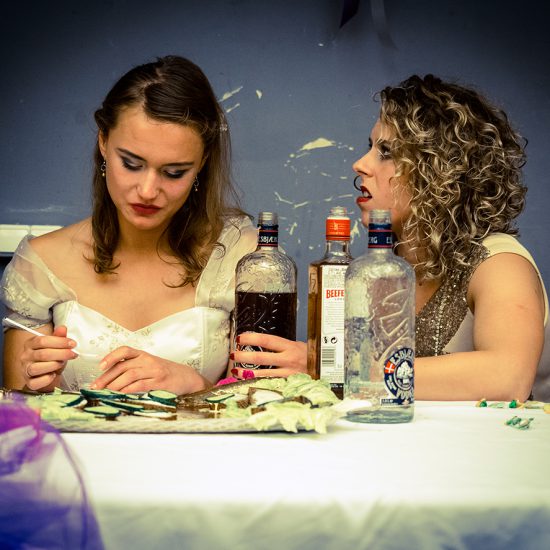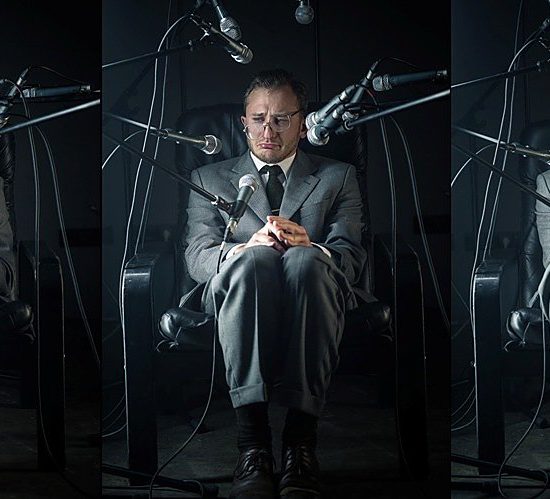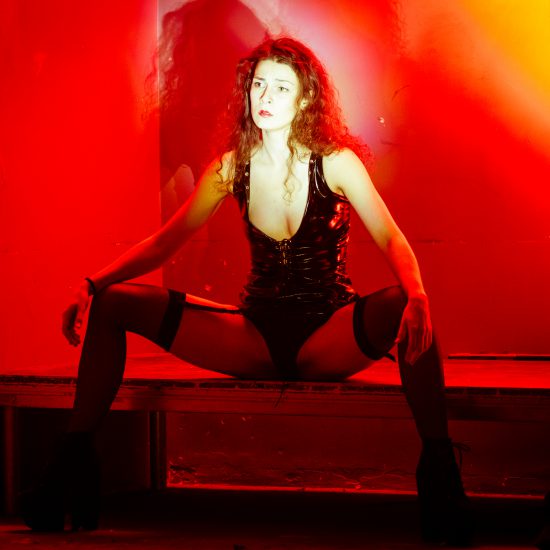Towards the Silence and Feeling
Instead of plunging straight into the whirlpools of despair and pain of Crave the directors Oskaras Korsunovas sand Povilas Laurinkus together with eight young actors tried very carefully to get closer to what is “beyond the limit, beyond the pain”, to find the light in the blackness of despair and in the confusion of sounds exhausting the silence.
An empty black space and eight spots of light appearing when the lamps hanging over the heads of actors flash up and falling onto the white pillows possessed by every member of the cast. Eight rectangles of light imprison the characters in a small patch of light. They cannot exceed its limits, thus cannot touch each other. The wish for salvation, the desire to feel others the way they feel themselves is fulfilled only through language. Visually very impressive scene where all the characters desperately and fiercely spinning around one axis as if fastened to the floor cry out the lines on the desire of “stunning immortal overcoming unconditional encompassing soul enriching mind widening constant never ending love”.
On the whole, there is a lot of anger, fury and roughness. Love is also like that. However, at its end the play starts calming down. In the last scenes four characters of Crave become important not only because of their function. The text of Crave in the play is presented the way that at the end A, B, C and M, pierced with the most intimate and personal disclosure, utter short monologues, in other words – everyone founds the words to talk about himself. That is when the feeling is born – intimate, not screaming.
After leaving the performance, for some reason a single phrase sounds in the ears: “I feel nothing, nothing”. Where is it from? I’ve remembered – this phrase has been furiously and desperately screamed out for several times – I wonder whether “military” vocabulary occurs accidentally? – by the character of Rasa Marazaite. I’m asking myself: do I feel anything also? Maybe I do… Something, somewhere, very deep inside. “The pain raised by associations”, according to one character of Crave. One wouldn’t say that the Korsunovas and Laurinkus’ play is declarative. I’d rather call it a laconic pain witnessing of playwright and, probably, of those young acting people as well. The witnessing that “only love can save me as love ruined me”.



